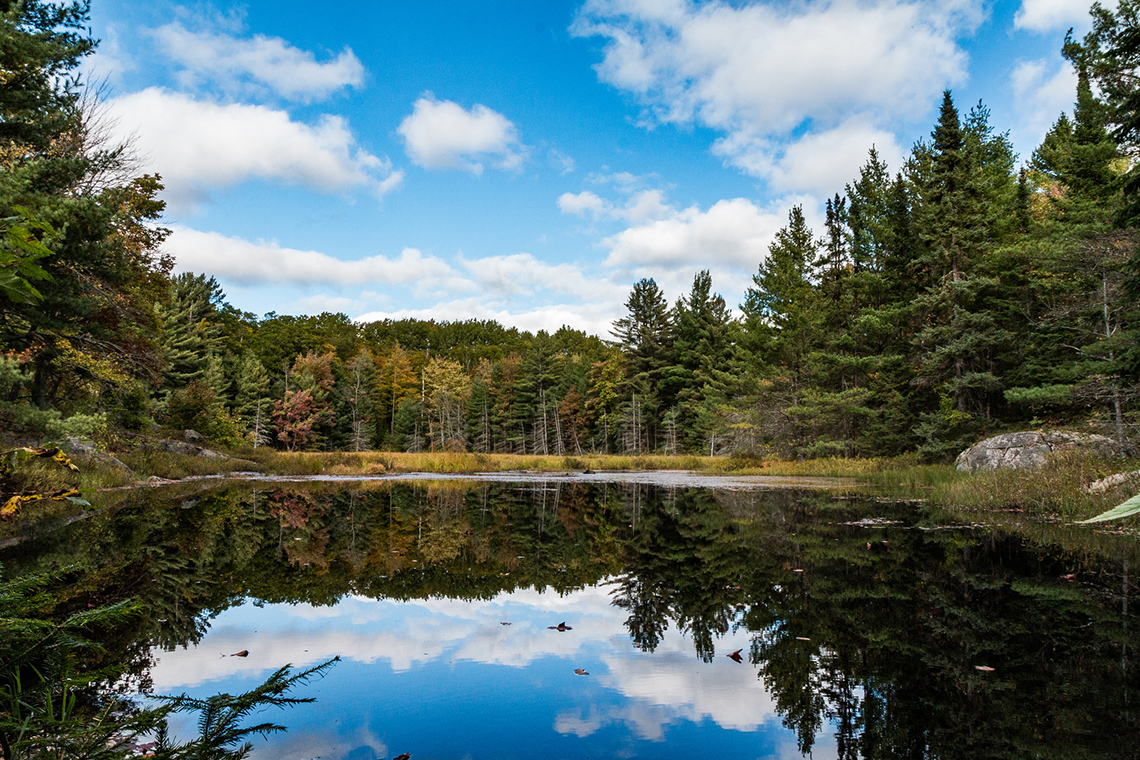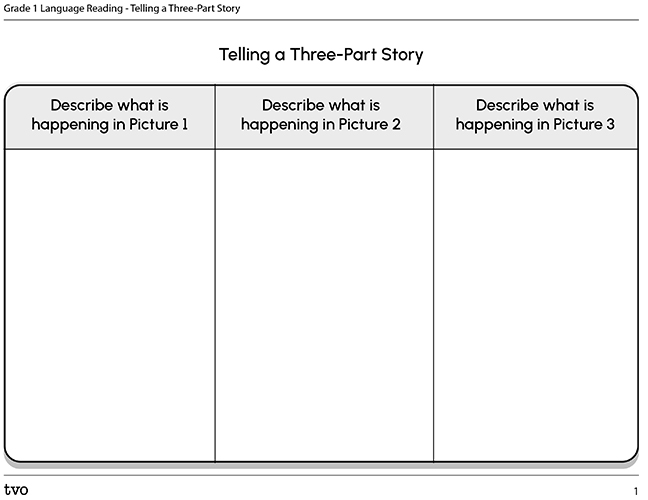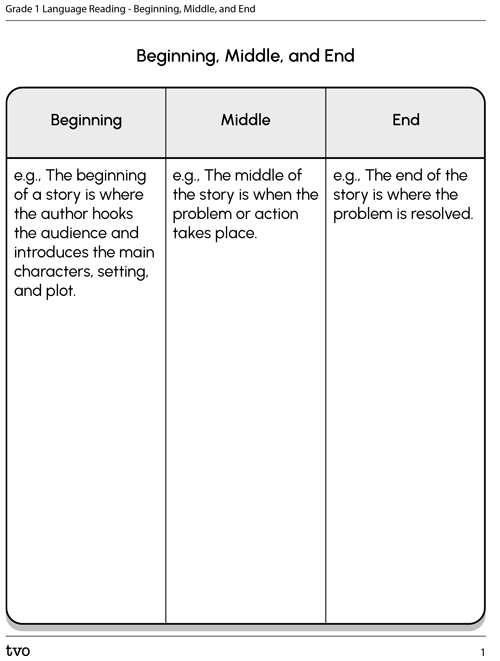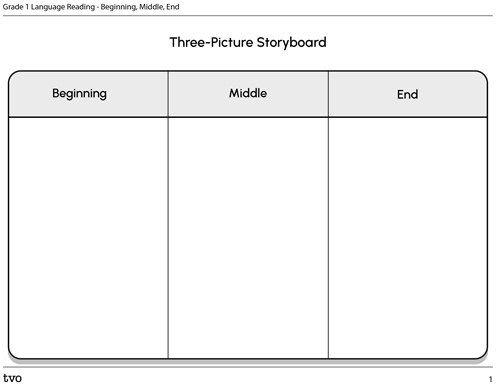Minds On
Start at the beginning
Stories are usually made up of three parts: the beginning, the middle, and the end. These three pictures tell a whole story:

Student Success
Think-Pair-Share
Explore the the following story. What do you notice?
If possible, share your ideas with a partner.

Describe what is happening in each picture. Complete Telling a Three-part Story in your notebook or use the following fillable and printable document. You can also use another method of your choice.
|
Describe what is happening in Picture 1: |
Describe what is happening in Picture 2: |
Describe what is happening in Picture 3: |
|---|---|---|
Note to teachers: See your teacher guide for collaboration tools, ideas and suggestions.
Action
Discussion
Student Tips
Thinking about definitions
Let’s consider:
- What happens in the beginning of a story?
- What happens in the middle of a story?
- What happens at the end of a story?
Let's create definitions to help understand each part of a story.
Complete the Beginning, Middle, and End chart in your notebook or use the following fillable and printable document. You can also use another method of your choice.
|
Beginning |
Middle |
End |
|---|---|---|
|
e.g., The beginning of a story is where the author excites the reader and where we meet the main characters, setting and plot. |
e.g., The middle of the story is when the problem or action takes place. |
e.g., The end of the story is where the problem is resolved. |
What happens next?
You have discussed the types of things that often take place in the beginning, middle, and end. Next up, let’s explore a story that only has a beginning.

Beaver, Moose, and Loon Make a Stew
One day in Algonquin Park, Beaver, Moose, and Loon were looking in the forest for ingredients to make a delicious stew. They worked together to collect the ingredients they needed in a forest. Beaver decided to go down to the river to fill their stewing pot with water.
As Beaver made her way down to the river, she tripped, and the pot went flying into the river.
What happens next? What happens in the end? It’s up to you!
Student Success
Think-Pair-Share
If possible, work with a partner to create the middle and end to complete the story.
Use the Beginning, Middle, and End chart to guide you. A reminder:
- The middle of your story is where the action and problem take place.
- The end is where the problem is resolved.
Record your middle and end in a notebook or another method of your choice.
Note to teachers: See your teacher guide for collaboration tools, ideas and suggestions.
Consolidation
Create a storyboard
Create a three-picture storyboard for your version of “Beaver, Moose, and Loon Make a Stew.”
Complete the Three-Picture Storyboard in your notebook or using the following fillable and printable document. Draw a picture or write a sentence in each box to describe the events in the beginning, middle, and end of the story.

You can also record your descriptions using another method of your choice.
|
Beginning |
Middle |
End |
|---|---|---|
Student Success
Think-Pair-Share
When you have completed your storyboard, consider:
- How does an illustration, photograph and/or description help you to understand what you are reading?
If possible, share your storyboard with a partner.
Note to teachers: See your teacher guide for collaboration tools, ideas and suggestions.

Reflection
How do you feel about what you have learned in this activity? Which of the next four sentences best matches how you are feeling about your learning? Press the button that is beside this sentence.
I feel...
Now, record your ideas about your feelings using a voice recorder, speech-to-text, or writing tool.


